UN Security Council Meeting, US Government, Wikimedia Commons, 25 October 1962
"In a sense, every obstacle for negotiations in general was an obstacle for Haig, but among these were specific problems with his mission which prevented him from being as effective as he could have been."
~ Joseph Mauro, The Falkland Islands War: Diplomatic Failure in April 1982, 2010
Alexander Haig didn't receive much support from his government. Probably his most outspoken opponents were Jeane Kirkpatrick, US Ambassador to the United Nations, and Thomas Enders, the assistant secretary of state for Inter-American affairs. Both were persistent in their claims of how Haig's position in the negotiations was incorrect. They believed that the US should be more supportive of Argentina in order to strengthen relations with Latin America. Since Kirkpatrick was in President Ronald Regan's cabinet, Britain felt a great need to take her words seriously. Based on mixed responses from Haig and his opponents, Britain didn't know where the US's loyalties lay.
"But ever since the Falklands crisis erupted, Mrs. Kirkpatrick, who is an Argentine specialist, has been critical of the Administration's handling of it. She was especially perturbed when Mr. Haig persuaded the President to side with Britain after Mr. Haig's mediation efforts failed."
~ Bernard Gwertzman, New York Times, 1982
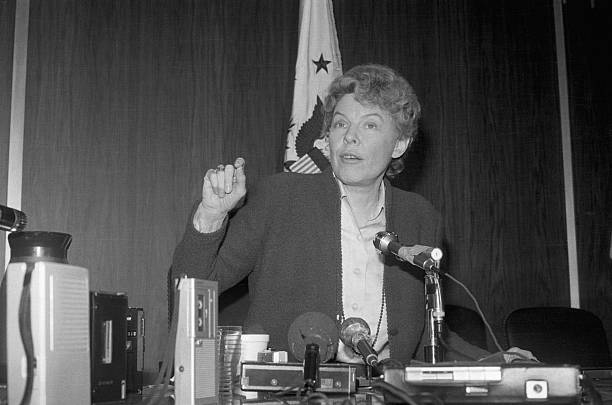
Jeane Kirkpatrick, Bettmann, Wikimedia Commons, 1985
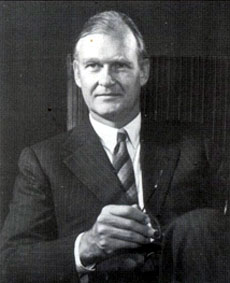
Thomas Enders, Wikimedia Commons, 1 November 1985
"President Ronald Reagan’s administration was divided over the conflict. Haig, believing equivocation could undermine the NATO alliance, favored backing the British. But Thomas Enders, the assistant secretary of state for Inter-American affairs, feared that supporting Britain would undermine U.S. anti-communist efforts in Latin America."
~ Andrew Glass, Politico, 2018
"Open conflicts between U.S. officials - the best publicized being those between Secretary Haig and U.S. Ambassador to the U.N. Jeane Kirkpatrick on the one hand, and Assistant Secretary for Euro-pean Affairs Lawrence Eagleberger and Inter-American Affairs Chief Thomas Enders on the other - were personally monitored by Admir-al Anaya."
~ David Lewis Feldman, The United States Role in the Malvinas Crisis, 1982: Misguidance and Misperception in Argentina's Decision to Go to War, 2000
As negotiations progressed, Argentina became increasingly convinced that the US was biased toward Britain. It was evident that President Reagan and Prime Minister Thatcher were good friends, while Reagan and President Galtieri were tense allies at best. The junta believed that the US was supplying Britain with critical information and that Haig could not be trusted. While Haig does admit to sympathizing with the British in his memoirs, he confirms that during the peace talks, he stayed completely neutral in order to ensure a fair negotiation. Still, Argentina's confidence in Haig slowly disintegrated and the junta began questioning the US's intentions.
"The Argentines always felt quite accurately that we were not an even-handed mediator. We were not just trying to offer our good offices to resolve the problem. Our efforts really were to get the Argentines to back down. And as soon as that became very apparent to the Argentines, yeah, they felt betrayed. They felt distrustful towards us."
~ Professor Lowell S. Gustafson, Zoom Interview
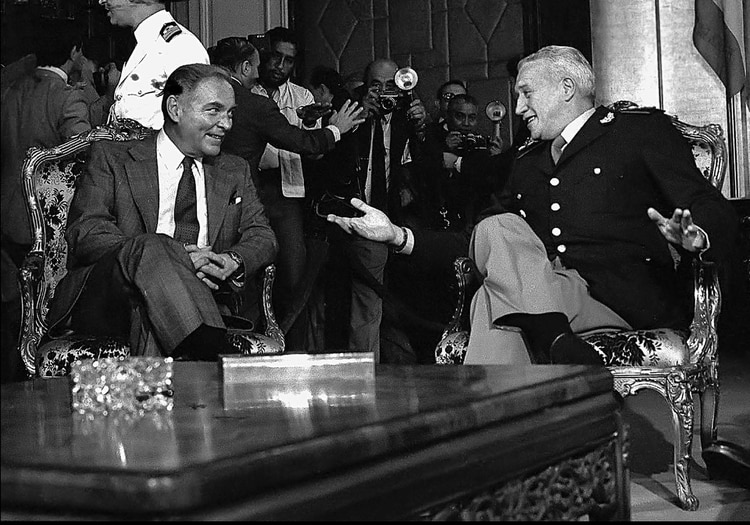
Negotiation between Haig and Galtieri, Diario El Faro, 1982
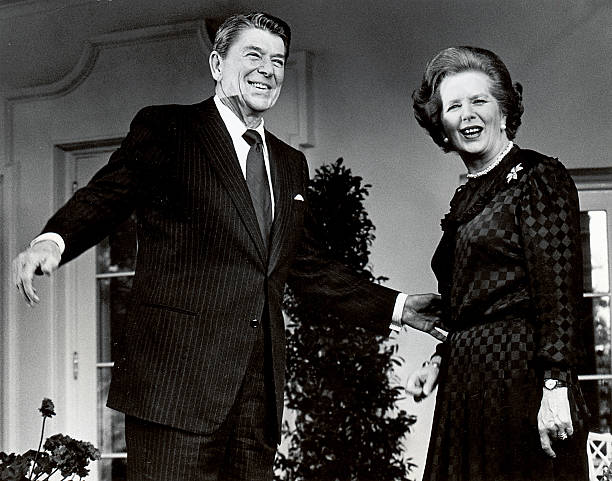
Reagan and Thatcher's Friendship by Frank Johnston, The Washington Post, 1982
ABC's Nightline News aired a false story claiming that the US was offering Britain resources and intel.
"Officials here have told ABC News that the United States has been providing Great Britain with extensive assistance in its military preparations...Indeed, that the White House was very seriously worried that knowledge of the United States' role in helping the British would make it more difficult for Secretary Haig to go to Buenos Aires."
~ Carl Bernstein, Transcript of ABC News Report, 13 April 1982
"In a desperate moment on April 18, he [Haig] pretended, in a wiretapped conversation in Buenos Aires, that he had secret military information about an imminent British attack. He was trying to scare the Argentines and make them more willing to consider his proposals, but his plan backfired. The next day, he and his aides were treated like enemies. They were escorted by armed guards everywhere they went and were deprived of food for twelve hours. That day, Argentinian Admiral Jorge Anaya told Haig that he doubted his neutrality, and he was never allowed to return to Buenos Aires again."
~ Joseph Mauro, The Falkland Islands War: Diplomatic Failure in April 1982, 2010
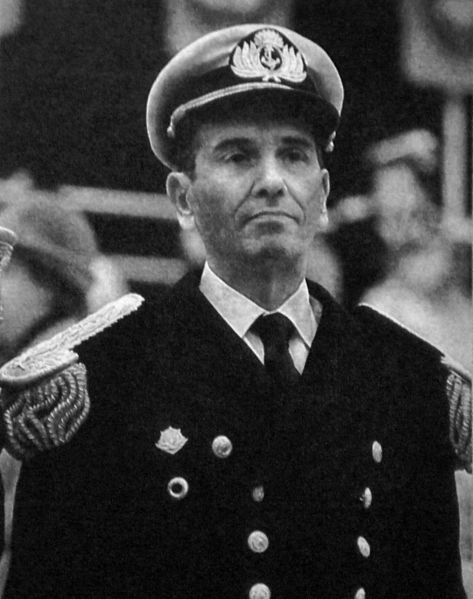
Admiral Jorge Isaac Anaya, Revista Gente, Wikimedia Commons, 1983
"We must find an element that brings cohesion to society and the country. That element is Malvinas."
~Admiral Jorge Isaac Anaya, 1982